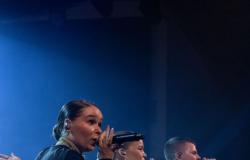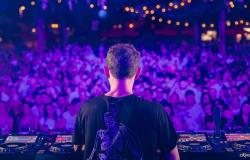“Near Chaos. When literature prepares us for the worst”, by Simon Bréan and Guillaume Bridet, Hermann, “Savoir lettres”, 312 p., €25, digital €17.
It is rare to name a new literary genre. “Near Chaos” is the term under which Simon Bréan and Guillaume Bridet, professors at the Sorbonne-Nouvelle, group together around fifty novels published in the 21st century.e century and whose action takes place in the near future. Takeover by extremists, urban guerrilla warfare, ecological catastrophe…: all the social anxieties of our time are pushed to their extreme.
In You will die like the othersby Denis Cheynet (Rue Fromentin, 2018), the entire social system collapses: food and water become scarce and anarchy sets in. In reality, natural resources were already exhausted; the “great debacle” has only amplified a situation – ours – made dramatic by the financialization of the economy, mind-numbing consumerism or the negligence of the State… Here, no world is saved by a nobody, like in Hollywood. “Every man for himself” reigns and only one certainty remains: “Your turn will come too.”
Gender at once “diagnostic” et “prophetic”the novel Near Chaos has the end as its horizon: the end of democracy, of our institutions, of the techno-scientific model… The end, above all, of all solidarity. Not quite, however, because, if there is nothing more to expect from the authorities, new forms of community appear, as in After the worldby Antoinette Rychner (Buchet-Chastel, 2020).
In response to the general debacle, some people are, in fact, opposing the following slogan: “To bring us together, and to show each other comfort.” It follows a small group in search of a community that will accept them. However, survival is only possible under certain conditions. Certainly, the ideal of a direct and (quasi) egalitarian democracy seems achievable and the professions of care, of human beings as well as of nature, acquire all their importance. However, with famine threatening, the group finds itself excluded and returns to its wandering.
The stories of Jérôme Leroy or Michel Houellebecq are neither novels of anticipation – no scientific invention projects us into the future – nor thesis novels: faced with the ongoing catastrophe, no utopia resists. They are all situated in a sort of extended, hypertrophied present, where the question arises as to whether it is not already too late. Is it a question of alerting, denouncing or even exorcising? The promised chaos is such that the traditional functions of the realist novel are blurred.
You have 9.84% of this article left to read. The rest is reserved for subscribers.







